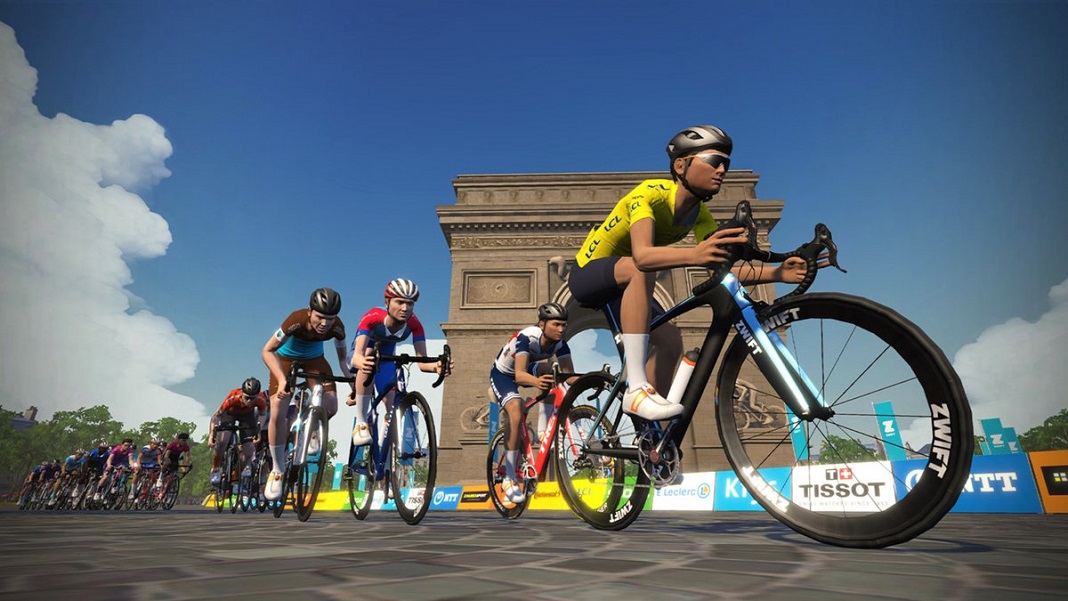This weekend, on August 29, 2020, the Tour de France will set off from Nice in a 22 day cycling race broadcasted across 190 countries and garnering an expected 1 billion viewers. Joining the race is Bahrain-McLaren, a team owned by Prince Nasser bin Ahmed al-Khalifa of the ruling family of Bahrain and that stands as an example of Bahrain’s efforts to hide their human rights abuses behind influential sports teams.
A recent trend has emerged of private investors from the Gulf, often wealthy members of ruling families, purchasing shares of influential sport teams abroad. Those investments are an example of “sportswashing,” a technique whereby heads of state or business executives attempt to cover their negative international reputations by associating themselves with sports that are viewed extremely positively. By running a team in the Tour de France, Bahrain is joining a long line of countries with diminished human rights records as they attempt to distract from continued abuses with flashy events such as the Olympics, the World Cup, or Formula 1, or as they rebrand themselves by associating their names with those of beloved teams.
Bahrain’s official strategy is “to boost its image and visibility, to promote the discovery of this small country and to stimulate tourism.” Indeed, the objective of Bahrain’s ruling family is to make sure that the name “Bahrain” is globally associated with popular sports such as cycling rather than with consistent human rights abuses, numerous documented cases of torture by government officials, and the violent repression of political opposition and human rights defenders.
The main goal of Bahrain’s government drives toward purchasing international sport teams is to hide it’s troubling human rights records. The case of Mohammad Ramadhan a Bahraini citizen who has been sentenced to death; and the abuse that he went through at the hand of authorities in Bahrain is a standing case of human rights violations which the government of Bahrain is trying to cover.
Mohamed Ramadhan was arrested in February 2014 for his supposed involvement in a bomb explosion which resulted in the death of a policeman. Bahraini security forces arrested him without presenting a warrant and transported him to the General Directorate of Criminal Investigation (CID) building without informing his family of his arrest. He was held and tortured for four days.
Mohamed Ramadhan explained in an article he later wrote in prison, that he was severely beaten with iron bars, forced to stand “until he collapsed,” kicked severely in the testicles and “stripped naked, powerless to resist humiliating sexual assaults.” The officers “threatened to rape [his] wife and sisters in front of [him].” This inhuman physical, psychological and sexual torture lasted, until Mohamed Ramadhan finally signed a false confession.
Mr. Ramadhan explains that his torturers knew he was not involved in the bomb explosion but that “his participation in protests and other political activities made him a traitor and therefore he deserved to be sentenced for his crimes.” He adds that the government officers who tortured him told him that “they were waiting for a major case to frame [him] in.” During the months that preceded his trial, he was not allowed to speak with a lawyer and he was ultimately convicted almost entirely on the basis of his confession extracted under torture.
He was sentenced to death in December 2014. In March 2018, due to overwhelming evidence of torture, the Special Investigation Unit of the Office of the Public Prosecution requested the right to investigate his case further. A few months later, Bahrain’s Court of Cassation overturned his death sentence. However, the trial continued, and Mohamed Ramadhan was sentenced to death once again using the same faulty evidence as his first trial.
In December 2019, Members of the European Parliament sent a letter to the Government of Bahrain raising concerns about Ramadhan’s trial and asking the authorities in Bahrain to ensure that Mohamed Ramadhan would have a “trial that has fully complied with international fair trial standards that excluded evidence obtained under torture, and without recourse to the death penalty.” They further asked the Government of Bahrain to “Promptly carry out credible and independent investigations into all allegations of torture, in particular those made in the cases of Mohamed Ramadhan (…) and take appropriate measures to bring the perpetrators to account.”
Last July, after the final verdict of the Court of Cassation reaffirmed the death sentence against Mohamed Ramadhan, 39 French Parliamentarians signed a similar letter in which they said that Mohamed Ramadhan and others were “tortured into confessing to crimes they did not commit” and joined the MEPs in calling for “the immediate cessation of the execution of Mr. Ramadhan.”
Mohamed Ramadhan is currently condemned to death and, with no remaining legal recourse, is facing imminent risk of execution. Before his new trial in December 2019, Mohamed Ramadhan said:
In 2017, we watched three fellow inmates being led out to the firing squad, the first political executions in Bahrain for 20 years. (…) I cannot describe how it feels knowing you could be next
The 2020 Tour de France is the latest edition of a cycling race that has nearly a century of history behind it and a worldwide audience in its grasp. It serves as a traditional source of pride for the French and sports-lovers alike and it should not be used as political cover for the consistent, systematic human rights abuses of which Mohamed Ramadhan stands as an example. Just as the ruling family in Bahrain should not be allowed to cover their reputation with the popularity of one of the most prestigious cycling events in the world, the organizers of the race should not tarnish its reputation by involving it with the use of torture, unfair trial, and the imposition of the death penalty. No sport can hide the abuses carried out by the government of Bahrain.





